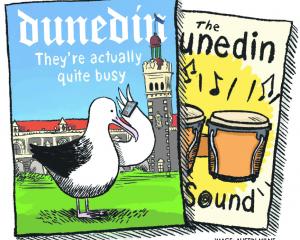
The index rose 1.2% from February to March and is now up 4.8% on the index's 2017 close.
ANZ agri economist Con Williams said there was broad-based support driven by dairy, meat, wool and forestry, the only sour note coming from aluminium prices.
"The laggard was aluminium, which has been caught up in US-China trade tensions alongside increasing inventory levels," Mr Williams said.
Overall, the exports received another boost from the New Zealand dollar falling against the currencies of most major trading partners, the boost lifting returns 2%.
"Dairy prices continued to push higher in March, up 3%, driven by lingering New Zealand supply concerns, very low GlobalDairyTrade [auction] supply and solid demand from a number of key markets," Mr Williams said.
While New Zealand had managed to maintain a "significant premium" against other dairy producers, skim milk powder prices slipped 3.8%, due to higher seasonal European supply and existing European Commission stockpiles.
Forestry prices had booked 18 months of consecutive gains and still managed a 0.3% lift again in March, while wood pulp prices were unchanged.
"Domestic and export log and lumber prices remain well above last year, with solid demand domestically and from China," Mr Williams said.
However, he cautioned the upward trajectory for forestry prices had "flattened out in recent months".
He said aluminium prices fell 5.1% month-on-month.
"The sector is not short on controversy."
Centre of attention was the tariff announcements from the US, but further uncertainty was in store given China's clampdown on excess production and capacity restrictions to improve air quality. For the time being, rising stocks of aluminium and the US-China trade tensions had put downward pressure on prices, Mr Williams said.
The 0.3% meat and fibre mix was lifted by wool and lamb prices, he said.
Beef markets had continued to perform well, unchanged, while wool prices continued to lift off lows which was driven by bargain hunting.
Lamb prices had "surprisingly lifted" despite the close of the seasonal special-occasion window and shift to frozen product, Mr Williams said.
He said seafood prices were "unchanged", and described horticultural products as still being in "hibernation".













